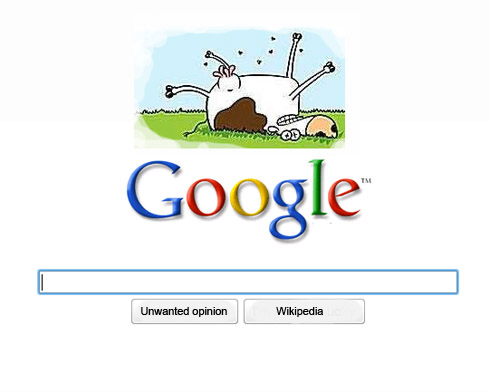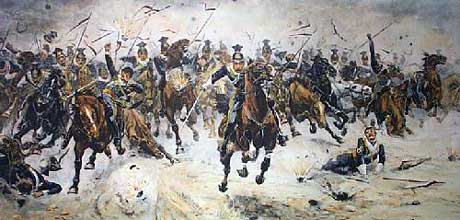
It’s hard to explain to people new to the web since 2004 – the Digg kids – the effect that Google had on the internet at the turn of the decade. They can’t conceive the Before and the After. Google was miraculous, and so much better than the competition that they effectively gave up trying to compete with it. But Google’s PageRank also unleashed social and political fads which reverberate right through to this day.
Much of the junk science of the web comes from Googlemania of this period. New institutes and venerable academic departments today all drink from the seemingly bottomless well. It permeates into Birtspeak 2.0, and you can see it in the Thumbs Up and Thumbs Down you see in Comments, for example. The mini-industry called “Social media marketing” wouldn’t really exist without it, either.
Google kindled the idea that the Web was a democracy, a great big voting machine. But only Google was uniquely qualified to divine these intentions – only Google had the capability and know-how to discern the ‘Hive Mind’. Google said so itself; its PR blurb explicitly made the connection between a New Form of Democracy and its own innovation, the “uniquely democratic nature of the web”.
For a couple of years, PageRank™ worked wonders. Then reality began to mess things up. What had worked well for conferring authority to peer-reviewed academic papers didn’t work quite so well in the wild. As Google grew, the importance of appearing in its rankings also grew. SEO and dirty tricks became big business. (See Meet the Jefferson of Web 2.0.)
This was first pointed out by your reporter in 2003, and it was manifest in two ways. Firstly, via the ease with which a small group of motivated people could hijack search terms, thanks to the dense interlinking nature of blogs. (A more perfect machine for rigging PageRank has yet to be invented). This was Googlewashing. And secondly, the ease with which spammers could clog the system with noise. The period also saw the migration of large amounts of information to the web in a searchable format. The real-time chatter from protocols that had previously been beyond the reach of search engines – such as AOL chatrooms – found its way into its Google. The result, by mid-2003, was a system that was broken.
You may recall that it was heresy at the time to doubt the quite magical technical ability of Google to get it ‘right’. The bandwagon of Web 2.0 had barely started to roll – it wasn’t christened until the following year – but there was already serious money on riding on it. But it was an even greater heresy to question the moral authority that the technology utopians had by then conferred on Google.
For Google wasn’t just ranking web pages, but adding to the human epistemological cannon – it was telling us what was wrong and right – filtered and legitimised through the people-powered Hive Mind. Thanks to the now-burdensome “Don’t Be Evil”, it constantly reminded us of its impeccable moral credentials.
Well, as you may have seen, PageRank™ is now dead. Google has given up on the job of ranking pages – it can’t cope any more – and outsourced the task of evaluating the job to the user. Needs must, and so it will make a virtue of the very feature that helped destroy the index – real-time noise. As Danny Sullivan points out, this is very big news indeed. I think it’s even bigger than Danny thinks it is – with an extra penthouse layer of bigness on top – for all the social and political implications mentioned above.
By outsourcing the ranking of pages to the hoi polloi, Google is saying that is no longer in the business of ‘arbitrating’ democracy. This is now the job of hordes of roaming single issue fanatics, voting pages up and down. You could say the internet has returned to its primordial soup.
Read more
 The audience are the actors in writer Tim Kring’s latest adventure. In his famous creation, the TV show Heroes, people discover they have superhero powers, and go off and battle Evil. In his latest, people go and battle Evil, and discover they have been given Nokia smartphones.
The audience are the actors in writer Tim Kring’s latest adventure. In his famous creation, the TV show Heroes, people discover they have superhero powers, and go off and battle Evil. In his latest, people go and battle Evil, and discover they have been given Nokia smartphones.




